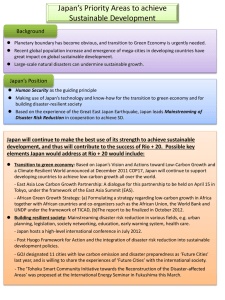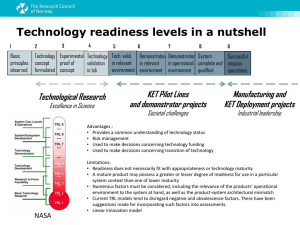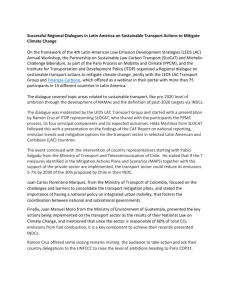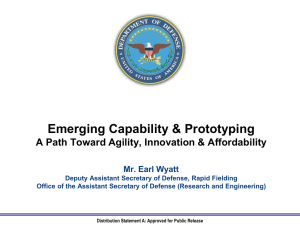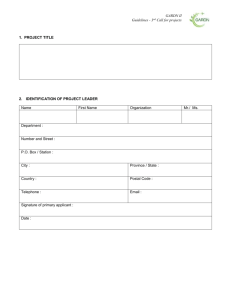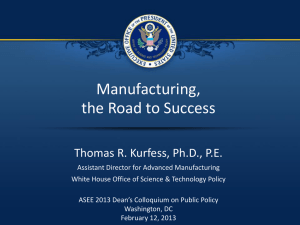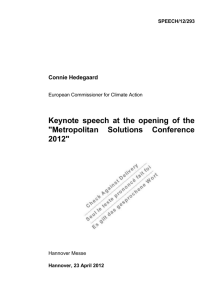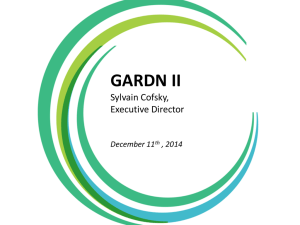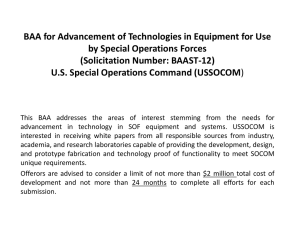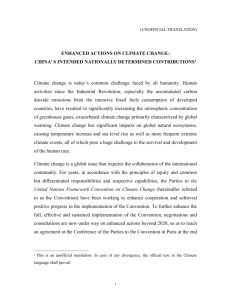the Program here
advertisement
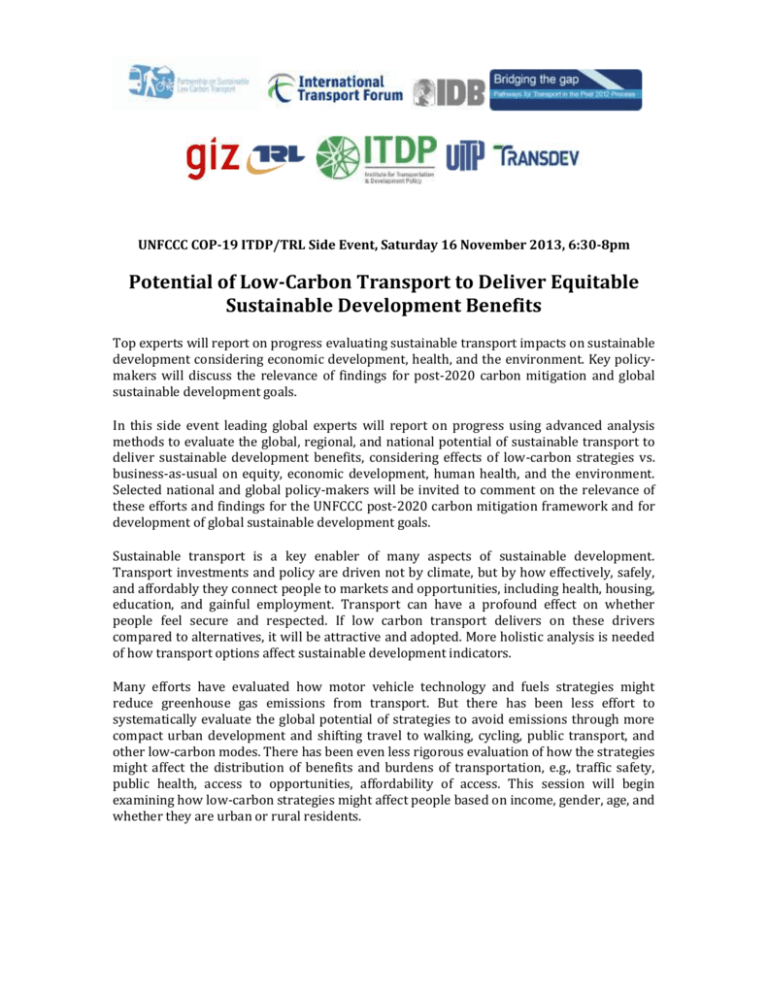
UNFCCC COP-19 ITDP/TRL Side Event, Saturday 16 November 2013, 6:30-8pm Potential of Low-Carbon Transport to Deliver Equitable Sustainable Development Benefits Top experts will report on progress evaluating sustainable transport impacts on sustainable development considering economic development, health, and the environment. Key policymakers will discuss the relevance of findings for post-2020 carbon mitigation and global sustainable development goals. In this side event leading global experts will report on progress using advanced analysis methods to evaluate the global, regional, and national potential of sustainable transport to deliver sustainable development benefits, considering effects of low-carbon strategies vs. business-as-usual on equity, economic development, human health, and the environment. Selected national and global policy-makers will be invited to comment on the relevance of these efforts and findings for the UNFCCC post-2020 carbon mitigation framework and for development of global sustainable development goals. Sustainable transport is a key enabler of many aspects of sustainable development. Transport investments and policy are driven not by climate, but by how effectively, safely, and affordably they connect people to markets and opportunities, including health, housing, education, and gainful employment. Transport can have a profound effect on whether people feel secure and respected. If low carbon transport delivers on these drivers compared to alternatives, it will be attractive and adopted. More holistic analysis is needed of how transport options affect sustainable development indicators. Many efforts have evaluated how motor vehicle technology and fuels strategies might reduce greenhouse gas emissions from transport. But there has been less effort to systematically evaluate the global potential of strategies to avoid emissions through more compact urban development and shifting travel to walking, cycling, public transport, and other low-carbon modes. There has been even less rigorous evaluation of how the strategies might affect the distribution of benefits and burdens of transportation, e.g., traffic safety, public health, access to opportunities, affordability of access. This session will begin examining how low-carbon strategies might affect people based on income, gender, age, and whether they are urban or rural residents. Potential of Low-Carbon Transport to Deliver Equitable Sustainable Development Benefits UNFCCC COP-19 ITDP/TRL Side Event, Saturday 16 November 2013, 6:30-8pm Heather Allen, Introduction of the Session, Programme Director Sustainable Transport, TRL Michael Replogle, Moderator, Managing Director for Policy and Founder of ITDP Speakers (10 minutes each) Jean-François Gagné, Head of Energy Technology Policy Division, International Energy Agency, Benefits of Sustainable Transport Planning and Implementation Lew Fulton, Research Faculty and Co-Director of the NextSTEPS Program, University of California, Davis, formerly Director of Transportation Analysis, International Energy Agency, Extending IEA’s MoMo Model to Evaluate Broader Sustainability Impacts Aimee Aguilar Jaber, Economist, International Transport Forum, OECD, Urbanization and Low Carbon Sustainable Development Cristiano Facanha, Transport Engineer, International Council on Clean Transportation (ICCT), Roadmap for Health and Transport Initiative Questions and Answers only: 10 min Discussants (3 minutes each) Bambang Susantono, Vice Minister of Transportation Department, Republic of Indonesia (Invited) Rodolfo Lacy Tamayo, Undersecretary of Planning and Environmental Policy of the Mexican Ministry of Environment and Natural Resources (Invited) Nikhil Seth, Director of Division of Sustainable Development, UNDESA Rafael Acevedo, Discussant, Lead Transport & Environment Specialist at the InterAmerican Development Bank. (Invited) Moderated panel discussion followed by open discussion with participants: 20 min Sponsors This side event is organized by the Institute for Transportation and Development Policy (ITDP), the Transport Research Foundation, Partnership on Sustainable Low Carbon Transport (SLoCaT), Bridging the Gap (BtG), the Inter-American Development Bank (IDB), and International Transport Forum (ITF). ITDP is a 28-year old non-profit organization that works with cities worldwide to bring about transport solutions that cut greenhouse gas emissions, reduce poverty, and improve the quality of urban life. The Transport Research Foundation is the non-profit host of the Transport Research Laboratory (TRL), based in the UK. SLoCaT brings together over 80 UN organizations, multilateral development banks, technical cooperation agencies, NGOs, research organizations and other organizations to advance sustainable transport. BtG is a partnership of GIZ, TRL, Transdev, ITDP and UITP that encourages international recognition that land transport should play a more important role in addressing climate change. The Inter-American Development Bank is committed to contribute to the sustainability of the transport sector in Latin America and the Caribbean. The International Transport Forum at the OECD is an intergovernmental organisation with 54 member countries. It acts as a strategic think tank for transport policy and organises an Annual Summit of ministers.
